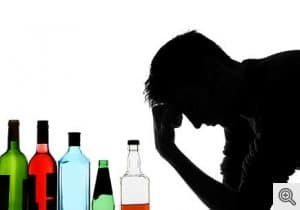A University of Michigan study published online in JAMA Pediatrics finds that 10 percent of high school seniors have engaged in extreme binge drinking, drinking 10 or more alcoholic drinks in a single sitting.
The study is based on data from a nationally representative sample of more than 16,000 high school seniors, surveyed between 2005 and 2011 as part of the annual Monitoring the Future Study conducted by the U-M Institute for Social Research.
“More than one in 10 high school seniors had 10 or more drinks in a row and more than one in 20 had 15 or more drinks in a row at least once in the last two weeks,” said U-M developmental psychologist Megan Patrick, lead author of the study.
The study is important because it provides insight into seemingly conflicting trends: that reported levels of binge drinking—traditionally defined as having five or more drinks in a row—have been declining among adolescents, although medical emergencies involving teen alcohol use have not.
The survey asked: “During the last two weeks, how many times (if any) have you had five (10, 15) or more drinks in a row?” A drink was defined as any a 12-ounce can or bottle of beer; a 4-ounce glass of wine; a 12-ounce bottle or can of wine cooler; or a mixed drink, shot glass of liquor or the equivalent.
Patrick and colleagues found considerable variation in the rates of binge drinking among different groups. Young men, students from more rural areas and individuals of white race/ethnicity had particularly high rates of extreme binge drinking. Teens from the Midwest were more likely than those in other geographic regions to report extreme binge drinking.
“Alcohol use among adolescents is an enduring public health problem, and our findings regarding the rates of extreme binge drinking are particularly alarming,” Patrick said. “We hope that this study is helpful in drawing attention to the extent of extreme binge drinking among our nation’s high school seniors.”
Co-authors of the study were U-M’s John Schulenberg, Meghan Martz, Patrick O’Malley and Lloyd Johnston and Jennifer Maggs of Penn State University.
The research was supported by the National Institute on Drug Abuse of the National Institutes of Health under Award Number R01DA001411.


